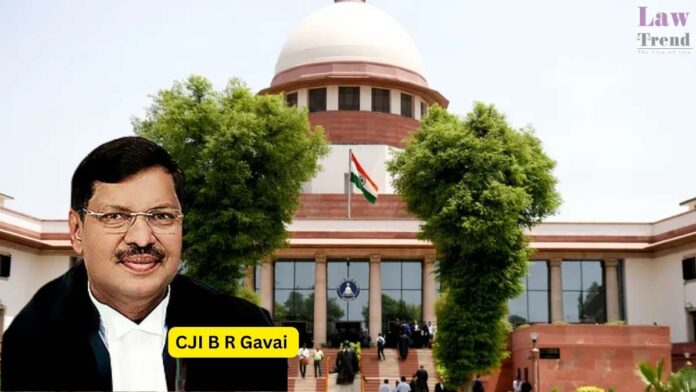A serious ten-day constitutional debate before a five-judge Supreme Court bench was punctuated by moments of humour, with the Chief Justice of India recalling a former High Court colleague who would “do everything except decide cases” and commenting on the difficulty judges face in keeping pace with the rapid arguments of senior lawyers. The bench was hearing arguments on a Presidential Reference regarding the judiciary’s power to set timelines for the President and Governors to grant assent to bills.
Background of the Matter
The Constitution Bench, comprising Chief Justice B R Gavai, and Justices Surya Kant, Vikram Nath, P S Narasimha and A S Chandurkar, was hearing a Presidential Reference seeking the apex court’s opinion on its powers to fix timelines for constitutional authorities like the President and Governors to act on pending bills. The reference also raised the question of whether ‘deemed assent’ could be granted by the court in cases of prolonged inaction.
Courtroom Exchanges and Observations
The otherwise serious proceedings saw several lighthearted exchanges. When the bench paused for an internal discussion, Solicitor General Tushar Mehta, who was arguing for the government, remarked, “I wish I had taken some classes on lip reading. When judges discuss something among themselves when we are arguing, we become apprehensive.”
In a candid response, CJI Gavai shared an anecdote from his time at the Bombay High Court. “We were not discussing something that was argued during the last three weeks. It is not like a colleague of ours in Bombay HC, who used to draw sketches during long arguments. He used to paint and do carpentry and what not, except deciding cases,” the CJI said.
Later, as the Solicitor General moved swiftly through his rejoinder submissions to meet a deadline, the CJI commented on the challenge of following the pace. “I became an SC judge in 2019. Even after six years, I am unable to keep pace with Delhi lawyers, who read the first sentence and then the tenth one before moving on to some other sentence,” CJI Gavai observed. He added, “Four of us on the bench, except for Justice Narasimha, find it difficult to match the speed of SC lawyers. Sometimes we feel lost. We will read the entire written submissions which run into more than 5,000 pages including the annexures.”
Justice Narasimha, who was a senior advocate at the Supreme Court Bar before his elevation, took the opportunity to advise the legal fraternity, stating, “This is a message for the next generation lawyers, who should not adopt this practice of skip reading.”
Submissions Against Judicial Intervention
On the core legal issue, the government strongly argued against the court creating timelines. The Attorney General for India cited the Greek mythological concept of the “Procrustean Bed,” persuading the court not to create a space for states to effectively amend the Constitution through judicial verdicts, which he argued is the “sole prerogative of Parliament.”
The Solicitor General contended that fixing timelines for governors would be “self-destruction and counterproductive.” He submitted that governors exercise the discretion of withholding assent in rare situations to protect the Constitution. Citing historical data, Mr. Mehta stated that “more than 94% of bills were assented to and the assent was withheld only to 20 out of over 17,000 bills in the last 55 years.”
The arguments in the matter have since concluded, and the five-judge bench has reserved its opinion on the Presidential Reference.




